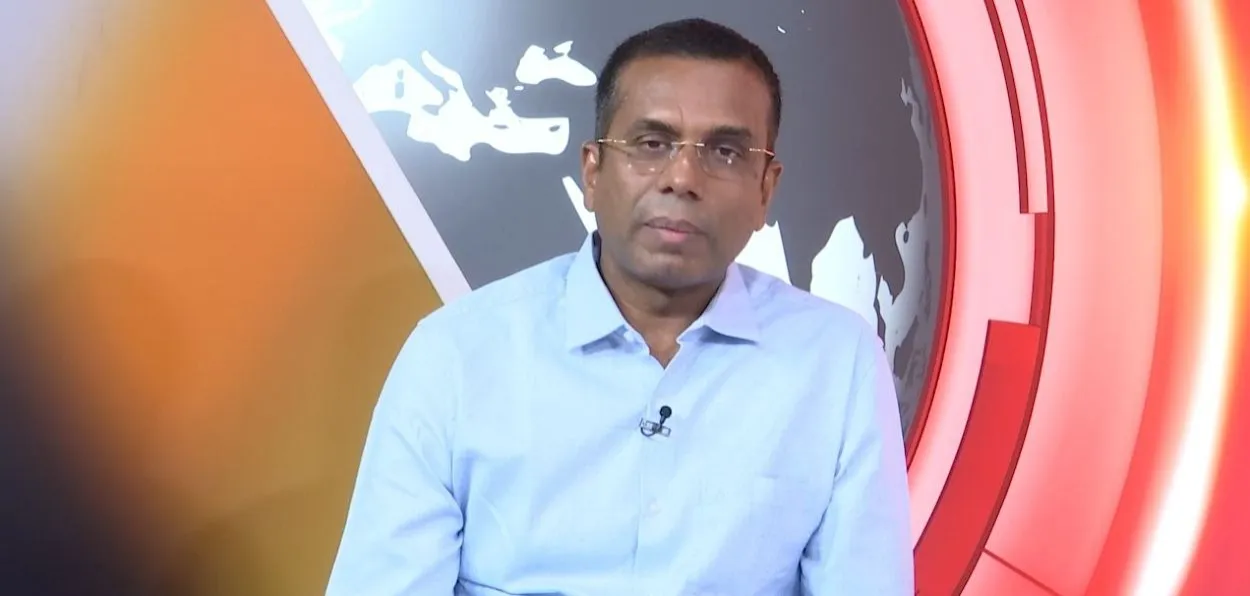
Mansooruddin Faridi/New Delhi
Officers from at least six ministries of the government and the Hajj Committee of India are engaged in round-the-clock work to make the pilgrimage for Indian Muslims a memorable experience Interestingly, the officers and volunteers engaged in this mission include Hindus, Muslims, Sikhs, and Christians reflecting the essence of world’s most diverse nation.
The Indian Hajj Mission is India’s largest diplomatic mission abroad.
According to the Chief Executive Officer of the Hajj Committee of India Liaquat Ali Afaqi, the Indian Hajj Mission is the biggest overseas mission of India both in administrative and work terms.
Speaking with Awaz-the Voice, Liaquat Ali Afaqi, who is from the Indian revenue Service (IRS), said that the presence of officers of all major religions of India is the most beautiful aspect of the Hajj mission as it reflects the civilization, culture, and values of the country and also describes its inherent religious tolerance and harmony.
“The first in the list is Smriti Irani Sahiba (former Minister for Minorities Affairs) whose knowledge about Hajj stunned me. Honestly, I couldn’t claim to know more about this religious duty than her. Her instructions to connect the entire process of people traveling for Hajj with technology also proved to be very useful,” Afaqi said.
Smriti Irani with the Indian delegation in Jeddah
“I will also name the Secretary of the Ministry of Minority Affairs Katithala Srinivas and Joint Secretary (Hajj) CPS Bakshi Sahib. Srinivas Sahib has so much knowledge. He has all the details of the past experiences of the Hajj on his fingertips. Which delegation went to Saudi in which year and which change was brought in over a period – he would speak about it without referring to any background note .”
About CPS Bakshi Sahib, he said.“You will be surprised to know that the credit of coordination between different ministries goes to Bakshi Sahib. If you bring any problem before him, he solves it in a jiffy.”
Besides, he says, Lawrence James, a Christian, is a member of the Hajj Committee of India. These names and faces play an important and anonymous role in making the Hajj mission successful.
He said that this Hajj mission is the result of the hard work of six ministries -Home Affairs, External Affairs, Civil Aviation, Finance, Health and the most important one the Ministry of Minority Affairs which is also the nodal ministry for the mission.
Currently, 600 personnel of the Ministry of Minority Affairs are in Saudi Arabia overseeing the arrangements for the Indian Hajj pilgrims.
Talking to Awaz The Voice, Liaquat Ali Afaqi said that Smriti Irani has done great work for the Hajj Mission as Minister of Minority Affairs. Her visit to Saudi Arabia was in the headlines, but her interest in making the Hajj mission a success is unprecedented. “Working with her, I was amazed that she knows every single thing about Hajj and understands every detail. She said that people who go on religious pilgrimage should not suffer because they are closer to Allah. And there are guests of God. Most of the Indian pilgrims are from rural areas, so providing them with basic amenities is very important and necessary.”
Liaquat Ali Afaq says that every Hajj is different from the previous one. This year, the increased use of technology has changed the shape of Hajj for pilgrims. “This time, the key to all facilities is in their hands in the form of a mobile app.”
CPS Bakshi and Katithala Srinivas
Technology has made it extremely easy for Hajj pilgrims to file a complaint or find the missing person. In this regard, the Swedha mobile application (App) has brought a revolutionary change. It’s being used by every pilgrim. “Technology has made it so convenient that you can scan the barcode of each of your goods and in case you lose them, these can be traced through the app.”
He says the second most common complaint in the Hajj was about pilgrims losing their way in a sea of humanity that gathers for the annual Hajj pilgrimage. If a pilgrim can’t find his way, he can simply press the SOS button which will make a centralized facility to receive an emergency call and the person will be traced.
Liaqat Ali Afaqi told Awaz-The Voice that the friendly relations between India and Saudi Arabia have had a very positive impact on the success of the Hajj mission and providing better facilities to the pilgrims. “It is as a result of our good relations that India's quota of pilgrims has reached 1.75 lakh.”
Liaqat Ali Afaqi, CEO of the Hajj Committee of India added that due to good relations between the two nations, this time, the Indian pilgrims are staying in the central area of Madinah which is the closest to the Prophet's Mosque. “Earlier it was not possible, only 70% of Hajj pilgrims got the opportunity to stay in Central, but this time because of our minister, 100% of Indian pilgrims were able to stay in Central Madhina.”
He said the Indian pilgrims being able to board the high-speed train from Jeddah for Makkah was a revolutionary step. It made Hajj easy and a memorable experience for the pilgrims. “It was for the first time, 35000 pilgrims from India traveled by bullet train from Jeddah to Makkah. Earlier they used to go by bus from Jeddah, which was a 6-hour journey. Now it takes only half an hour. This is the result of the government's efforts.
ALSO READ: Modi 3.0 must focus on job creation to keep fastest-growing economy flag fluttering
Liaquat Ali Afaqi said that this year's Hajj journey can be described as ideal because we have succeeded in making the Hajj journey easier.
